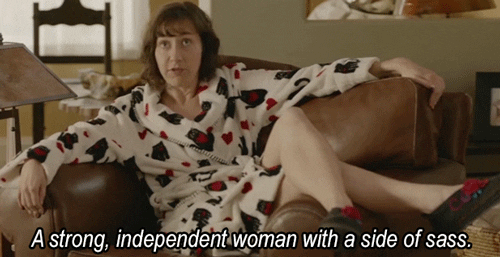
It’s a grim state of affairs, but the Ol’ Rona has had a huge impact on the status of lovebirds worldwide. According to Forbes, only 18% of couples are satisfied with their level of communication right now, with the Chinese city of Xi’an experiencing a record-high number of divorce requests since the outbreak of the pandemic.
It’s pretty typical that in times of heightened anxiety worldwide, our interpersonal relationships become a microcosmic display of intensity, mirroring our general stress at the world.

Long-term relationships and “de facto” relationships, in particular, are at risk of having extra pressure put on them at the moment, due to factors like job loss or the inability to see family and friends.
As outlined by the Family Law Act, a relationship becomes a “de facto” partnership when a couple has lived together for two years or longer. That’s the blanket definition, but there are different criteria which different institutions (e.g. Centrelink, Home Affairs) will use to determine the status of your relationship.
If you’ve lived with your partner in a “married-like” way for at least two years (slept in the same bed most nights a week in the apartment either both or one of you is renting/own, bickered over Netflix selections etc.) then, it’s safe to say your relationship will be recognised as de facto by most institutions.
Other criteria that may come into play, includes whether a sexual relationship exists, the degree of financial dependence or interdependence in the relationship, the ownership of property and whether children are involved too.
When a couple is legally married to one another or related, they are not considered to be in a de facto relationship. However, de facto couples are entitled to many of the same rights and claims as married couples when it comes to Family Law matters pertaining to property, financial settlements, maintenance and arrangements for the children of the relationship.
In short, if your de facto relationship ends, it could have huge reverberations on your financial future due to the legalities you and your partner are both entitled to.
According to the ABS, in Australia, relationships that are legally recognised as “de facto” have trended upwards in numbers since 2006, with around 10.4% of Aussies in an active partnership since 2012.

Now we get it – when a relationship breaks down, worrying about the ~logistics~ could be the last thing on your mind.
Even though it seems like a lot of brainpower-usage, it’s always best to wrap your head around the “what if” to ensure your emotional, mental and financial wellbeing are kept intact if something were to go awry.
So, to get our heads around the legalities surrounding what exactly de facto relationships entail, and how they can potentially impact your financial future we asked Michaela McGlinn, General Manager, Commonwealth Financial Planning to clear up some grey areas around the topic.
PTV: What is a de facto partnership?
Michaela McGlinn: A de facto relationship arises where 2 people, who are unrelated by family or marriage, are in a relationship as a couple living together on a genuine domestic basis.
De facto couples are entitled to the same rights and claims as married couples when it comes to Family Law matters, including property, financial settlements, and arrangements for the children of the relationship. And this applies to both heterosexual and LGBTQI+ relationships.
PTV: Is a de facto partner able to make a claim on your savings and assets?
MM: It’s important to think about how you want to manage your finances as a couple from the outset. That means everything from whether you’ll have joint bank accounts to how you’ll handle ownership of debts and liabilities.
Even if you opt to keep your finances separate, in a de-facto relationship your partner could lay some claim to your individual assets.
PTV: What are the initial steps one should take in ensuring their finances are secure in the instance of a de facto relationship breaking up?
MM: Although money can be the last thing on your mind during a relationship breakdown, it is important to take steps quickly to safeguard your financial security and wellbeing.
Assess your living situation – if you or your partner move out, make sure you update your utilities and lease. If your name is on the bills or the lease, you are liable for the unpaid amount as well as rent and damages even if you are not living there.
If you have joint accounts, consider closing these and changing PINs and passwords. Make sure that you have money in an account that your partner does not have access to, and that your pay or any other income is going into this account.
If you have a joint mortgage or loan, notify your bank immediately and consider cancelling the redraw facility if you have one so that your partner can not withdraw money in the redraw account. You should also put a hold on, or cancel, secondary cards or credit card accounts in joint names.

PTV: What happens to your partner’s debt in a de facto relationship?
MM: In a de facto relationship, you could be held accountable for your partner’s debt. That’s why it’s important to have regular, open, and respectful conversations about money in relationships.
Doing so will ensure you and your partner are on the same page, can help reduce misunderstandings and it also helps protect your financial wellbeing.
PTV: Will an individual need to divide their superannuation upon ending a de facto relationship?
MM: If you’re in a de facto relationship, your partner could be entitled to part of your superannuation if you spilt up. However, as superannuation differs from other property, there are specific rules around how and when these assets can be accessed.
PTV: Does a de facto couple need to divide their assets upon breaking up? How does this usually happen?
MM: The couple can decide how the property – assets and debts – get divided. However, if the spilt isn’t amicable, a mutual decision can’t be reached, or there are any signs of financial abuse, you can take a more formal route and have a court determine how the property gets split up.

PTV: Should you come to a financial agreement or sign a “prenup” before entering a de facto relationship?
MM: There’s no right or wrong way to manage money as a couple, but it’s best to have open and honest conversations upfront about your attitudes and approaches to money, and your short-term and long-term goals as a couple.
It might also be a good idea to seek independent financial and legal advice so you have peace of mind that you will be protected financially should the relationship breakdown for whatever reason.
Consider drawing up a Binding Financial Agreement (BFA), which is an agreement that clarifies who gets what assets if you break up. Although this might not happen and can be unpleasant to think about, a BFA can save a lot of time, money, and stress in the future if the relationship was to break down. Both parties must obtain independent legal advice on this (including a written statement from their legal adviser) if they decide to draw up a BFA.
PTV: Why is maintaining financial independence even in a de facto relationship so important?
MM: No matter how you decide to manage your money as a couple, I always say that it’s important to make sure that both partners have an equal voice in decision making, both partners are transparent and share information, and financial decisions and responsibilities are shared.
If any of these three things are absent from a relationship, it can lead to problems and even financial abuse. Understanding the signs of an unhealthy financial relationship and staying vigilant is extremely important to protect your financial wellbeing.
Always maintain some form of financial independence – this means knowing what bank accounts you have, where important documents are kept, knowing your PINs and passwords and keeping them safe, ensuring you can manage any debts, and keeping access to a rainy day fund for those unexpected or unfortunate events.

It’s not pleasant to consider, however, financial abuse can start and continue after a relationship breaks down.
If you’re looking for more info around financial abuse, you can suss out CommBank’s financial abuse portal. You can also take a look at Recognise and Recover, as a guide to recognising financial abuse, recovering and regaining financial
control.
If you or someone you know is affected by domestic violence, please call 1800 RESPECT (1800 737 732). In an emergency, call triple-0.



